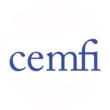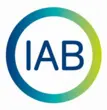-
- Postgraduate Scholarship
- Posted 1 day ago
Scholarships and Tuition Fee Waivers for PhD in Economics
at CEMFI in Madrid, Spain
-
- Postgraduate Scholarship
- Posted 1 day ago
Scholarships and Tuition Fee Waivers for Master in Economics
Starts 1 Sep at CEMFI in Madrid, Spain
-
- PhD Program, Program, Postgraduate Scholarship
- Posted 6 days ago
Fully Funded 4.5-Year PhD Scholarship in Health Economics - Monash University (Melbourne, Australia)
Starts 1 Jul at Centre for Health Economics, Monash University in Melbourne, Australia
-
- Workshop, Scholarship, Prize / Contest, Research/Project Funding Opportunity
- (Online)
- Posted 1 week ago
Call for Papers - Advances in Econometrics volume: Bayesian Macroeconometrics
28 Feb in Brisbane
-
- Postgraduate Scholarship
- Posted 1 month ago
7 DOCTORAL SCHOLARSHIPS
Starts 1 Oct at The Institute for Employment Research (IAB) in Nürnberg, Germany
-
- PhD Program, Program, Postgraduate Scholarship
- Posted 7 months ago
Call for applications PhD in Global Studies 2025/2026 – 10 positions with scholarship at University of Urbino, Italy
Starts 1 Nov at University of Urbino "Carlo Bo" in Urbino, Italy -
- Research/Project Funding Opportunity
- (Online)
- Posted 1 year ago
Publish A Summary of Your Economics Research on INOMICS
at INOMICS in Berlin, Germany
-
- Research/Project Funding Opportunity
- (Online)
- Posted 1 month ago
Call for Applications and Nominations: Philipp Sandner Memorial Award in Digital Finance Research 2026
at Frankfurt School of Finance & Management gGmbH in Frankfurt am Main, Germany -
- PhD Program, Program, Postgraduate Scholarship
- Posted 3 months ago
S3W PhD Program - Call for Applications 2025 - Additional Pegaso fellowship
Starts 1 Nov at IMT School for Advanced Studies Lucca and University of Florence -
- Research/Project Funding Opportunity
- Posted 3 months ago
Call for Research Projects 2025 "Women and Science"
at Paris Dauphine University in France -
- Fellowship
- Posted 4 months ago
Distinguished Research Fellowships@TU Dresden 2026
Starts 1 Apr at Technische Universität Dresden in Dresden, Germany -
- Prize / Contest
- (Online)
- Posted 4 months ago
Call for book chapters - The Francophone doctoral experience (interdisciplinary volume)
-
- Fellowship
- Posted 4 months ago
UNU-WIDER Visiting PhD Fellowship
at United Nations University World Institute for Development Economics Research (UNU-WIDER) in Helsinki, Finland -
- Postgraduate Scholarship, Research/Project Funding Opportunity
- Posted 4 months ago
UNU-WIDER Visiting Scholar Programme
at United Nations University World Institute for Development Economics Research (UNU-WIDER) in Helsinki, Finland -
- Fellowship
- (Hybrid)
- Posted 5 months ago
NBB Research Fellowship Programme
at National Bank of Belgium in Brussels, Belgium -
- Fellowship
- Posted 5 months ago
2026 Visiting Scholars Program of the Leibniz Institute for East and Southeast European Studies (IOS)
at Leibniz Institute for East and Southeast European Studies (IOS) in Regensburg in Regensburg, Germany -
- Undergraduate Scholarship, Scholarship, PhD Candidate Job, Postgraduate Scholarship
- Posted 8 months ago
Exciting opportunity for two full-time PhD students in the rapidly growing field of hydrogen energy
At University of Adelaide in Adelaide, Australia -
- Prize / Contest
- Posted 8 months ago
15th BEST PAPER AWARD ON GENDER ECONOMICS – 2 Prizes Worth € 2,500 each
at UniCredit Foundation -
- Postgraduate Scholarship, Research/Project Funding Opportunity, Other Funding Opportunity
- (Online)
- Posted 9 months ago
Research Funding from the National Bank of Slovakia
Starts 1 Oct -
- Research/Project Funding Opportunity
- Posted 8 months ago
Notice to Extend the Expiration Date of PAR-25-045, NIDCR Small Research Grants for Oral Health Data Analysis and Statistical Methodology Development (R03 Clinical Trial Not Allowed)
at National Institutes of Health in United States -
- Fellowship
- Posted 10 months ago
Meyer-Struckmann Scholarship for Scholars from Eastern and Southern Europe
Starts 1 Apr at Düsseldorf Institute for Competition Economics (DICE) - University of Düsseldorf in Düsseldorf, Germany -
- Financial Aid Offer, Fellowship, Postgraduate Scholarship
- Posted 10 months ago
UNU-WIDER Visiting PhD Fellowship
Starts 1 Sep at United Nations University World Institute for Development Economics Research (UNU-WIDER) in Helsinki, Finland -
- Fellowship, Research/Project Funding Opportunity
- Posted 11 months ago
Joint application for Marie Skłodowska-Curie European Fellowship positions at University of Southern Denmark
Starts 1 Sep at University of Southern Denmark in Denmark -
- Prize / Contest
- Posted 11 months ago
EFFAS GASPERINI AWARDS 2025
at EFFAS in Frankfurt am Main, Germany -
- Prize / Contest
- (Hybrid)
- Posted 1 year ago
Call for Applications and Nominations: Philipp Sandner Award in Digital Finance Research
at Frankfurt School of Finance & Management in Frankfurt am Main, Germany
Pagination







